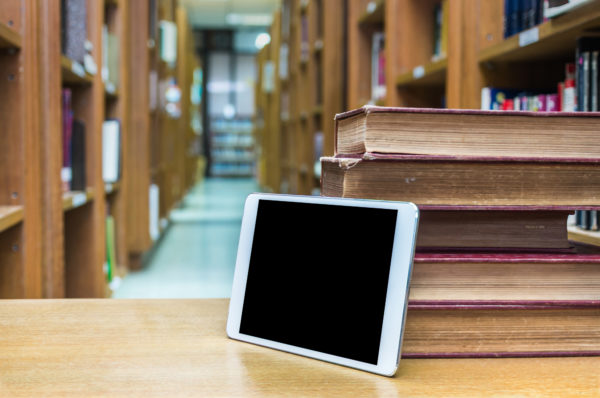New project highlights critical role school librarians play in supporting Future Ready goals
Future Ready Schools (FRS), led by the Alliance for Excellent Education (the Alliance) in partnership with the U.S. Department of Education, announced Future Ready Librarians, an expansion of the FRS initiative aimed at positioning librarians as leaders in the digital transformation of learning.
The FRS initiative helps district leaders recognize the potential of digital tools and align necessary technologies with instructional goals to support teaching and learning.
“In today’s digital world, the school library has evolved from a place to merely check out books to one that offers opportunities for collaboration, project-based learning, and online access,” said Alliance for Excellent Education President Bob Wise. “Similarly, librarians are now playing central roles in school leadership and working daily with students, teachers, and administrators. Through Future Ready Librarians, school librarians will be better equipped to support teachers in their transition to a digital learning environment while themselves becoming more future ready.”
Follett, the largest provider of educational materials and technology solutions to pre-K–12 schools in the United States, will support the development of tools and resources to connect librarians and libraries in support of the FRS initiative and enable district leaders to better engage and empower librarians to support their FRS vision.
“Follett is thrilled to support the Future Ready Librarians initiative, as it aligns perfectly with our history and our vision for the future of education,” said Nader Qaimari, president of Follett School Solutions. “Through Project Connect and this initiative, we will continue to advocate for strong, empowered school librarians. Now we can be even more effective as we create new resources and services designed to position librarians as leaders in a digital transformation.”
A network of nationally recognized librarians, including Mark Ray, chief digital officer for Vancouver Public Schools in Washington, will provide input on the development of strategies, tools, and resources aligned with the FRS framework. A former high school librarian, Ray has been nationally recognized for transforming the role of the school librarian into a technological innovator in schools.
“Future Ready librarians embrace change and innovation in education,” said Ray. “As teachers, they empower students as creators and digital citizens; as coaches, they collaborate with teachers as curators and guides. Future Ready schools require new kinds of leadership. The Future Ready Librarians initiative will help define what that leadership can be.”
“School librarians lead transformational learning through their instructional leadership in the digital learning landscape,” said Leslie Preddy, president of the American Association of School Librarians, an FRS coalition partner. “They support educators and prepare youth for informed living in a technology- and information-rich society. The expansion of the Future Ready initiative to include Future Ready Librarians re-affirms school librarians as critical to the transition and sustainability of effective digital learning.”
Future Ready Librarians builds on the Alliance’s 2014 report, Leading In and Beyond the Library, which first outlined the Alliance’s belief that school librarians and libraries should play a key role in state- and districtwide efforts to transition to digital learning. The Alliance has also repeatedly stressed the importance of school librarians through Digital Learning Day, which the Alliance first created in 2012 to highlight great teaching practices and demonstrate how technology can improve student outcomes.
Today’s Future Ready Librarians announcement comes on the heels of the White House’s National Week of Making (June 17–23). The Maker Movement in schools is designed to provide physical spaces within schools where students can collaborate with their peers to build, create, and tinker. These maker spaces are frequently led by librarians and located within school libraries, which have been reconfigured and redesigned to include workstations where students work on projects involving coding and robots, inquiry-based building, and even 3-D printing.
“With skilled librarians leading the charge, school libraries evolve from quiet reading zones to active, flexible learning spaces for student collaboration and innovation,” said Wise. “Such approaches move students to become designers and creators engaged in real-world applications of their learning who are better prepared for success in college and a career.”
- 4 ways to support work-based learning - April 23, 2024
- Prioritizing inclusivity in game-based learning - April 22, 2024
- Friday 5: Universal Design for Learning - April 19, 2024


